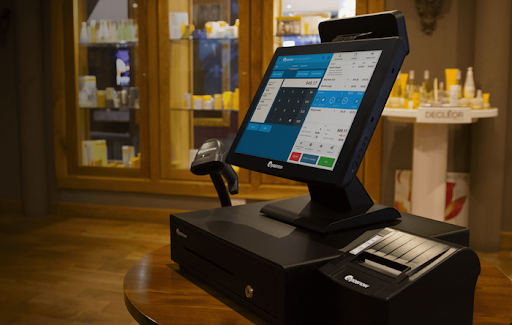Amidst the fast-paced business environment, the performance of transactions can markedly impact total productivity. Point of Sale systems, or POS systems, have transformed far beyond their simple beginnings as simple cash registers. With modern technology, they have transformed into vital tools that not only enhance sales processes but also boost employee productivity across different industries. Understanding what a POS system is and how it can alter the way businesses operate is essential for any entrepreneur looking to remain competitive.
As businesses more and more adopt cloud-based technologies and incorporate advanced features, the modern POS system is capable of far more than merely processing sales. From overseeing inventory and customer relationships to providing valuable analytics, these systems can greatly enhance operational efficiency. In this article, we will explore the numerous ways user-friendly POS systems can streamline workflows, improve customer experiences, and ultimately lead to success in different business settings.
Comprehending Point of Sale Systems
A POS system is a essential component for companies, acting as the medium between customers and vendors during sales. At its heart, a Point of Sale system enables transactions by handling payments, overseeing stock, and generating transaction reports. It can combine various functionalities, including payment solutions, customer relationship management, and inventory tracking, making it an indispensable tool for shopping and hospitality sectors.
The evolution of Point of Sale systems has transformed significantly from classic cash registers to advanced, cloud-based solutions. Early cash registers only recorded transactions, while contemporary Point of Sale solutions utilize technology to improve business efficiency and improve customer interactions. Companies can now leverage features such as mobile payment solutions, client insights, and instantaneous inventory management, which all facilitate a smooth transaction process and better customer service delivery.
Understanding the diverse kinds of Point of Sale systems available is essential for companies to choose the best system. There are industry-specific systems designed for restaurants, shopping, and e-commerce, each tailored to satisfy specific business needs. Furthermore, with the rise of mPOS systems that enable transactions to happen in any location, companies are well-prepared to meet client preferences and enhance staff productivity.
Selecting the Right POS System
Selecting the right POS solution for your company requires understanding your specific requirements and the unique features that will benefit your processes. It is essential to assess factors including your sector needs, the scale of your company, and the varieties of transactions you handle. For instance, a food establishment may require a POS system with table management and menu customization features, while a sales store might focus on inventory management and customer relationship handling capabilities.
Another crucial aspect to consider is ease of use. A simple to use interface ensures that staff can quickly learn the solution, reducing training time and lessening errors during transactions. The top POS systems are crafted with easy navigation, enabling staff to assist customers effectively. Testing demo versions or trial phases can provide important insights into the functionality of the solution before making a final decision.
Ultimately, take into account the long-term scalability and compatibility features of the POS system. As your business grows, your POS needs may evolve, requiring more advanced features or seamless links to other applications, such as accounting or inventory management tools. Selecting a system that can adjust to your changing requirements will enhance productivity and streamline operations in the long run, ensuring that your company stays relevant in the ever-changing marketplace.

Maximizing Effectiveness with Point of Sale Solutions
Deploying a modern POS system can considerably optimize operations throughout various business sectors. These systems offer employees with intuitive interfaces that enable quicker transactions and minimize the learning curve for new staff. With straightforward designs and touch-screen functionalities, employees can process sales, oversee inventory, and produce reports with little training, permitting them to focus more on offering excellent customer service rather than struggling with complicated systems.
Additionally, integrated features such as inventory management and customer relationship management allow for smooth information flow, enhancing decision-making and operational efficiency. When employees can access real-time data regarding stock levels and customer preferences straight from their POS, they can make informed choices that can lead to improved customer interactions and boosted sales. This integration minimizes the need for repetitive tasks, enabling staff to allocate their time more effectively.
Lastly, as businesses change, scalability becomes vital. Full Report are crafted to grow alongside your business, allowing for new locations, additional features, and greater transactional volumes effortlessly. By enhancing workflow processes, companies not only enhance employee productivity but also create a more agile business environment capable of adapting to changing consumer demands and market conditions. Embracing POS technology ultimately produces a more productive operation that benefits both employees and customers alike.
